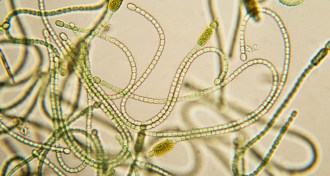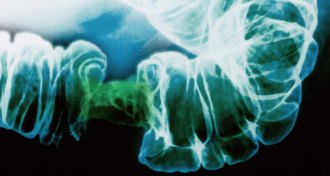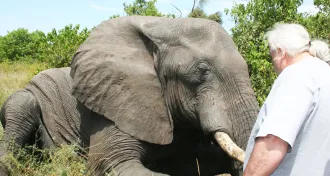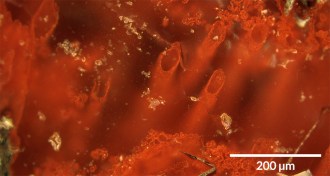Uncategorized
-
 Particle Physics
Particle PhysicsTriplet of high-energy neutrinos detected from unknown source
The IceCube Neutrino Observatory spotted three neutrinos within 100 seconds that seem to have come from the same place in the sky.
-
 Science & Society
Science & SocietyChoosing the right cyberattack response is a complicated game
Public shaming or retaliation aren’t necessarily the best strategies in the world of cyber warfare, an analysis reveals
-
 Ecosystems
EcosystemsIf you think the Amazon jungle is completely wild, think again
Ancient Amazonians partly or fully domesticated fruit and nut trees that still dominate some forests.
By Bruce Bower -
 Health & Medicine
Health & MedicineMicrocephaly, other birth defects are on the rise since Zika’s arrival
The rate of certain birth defects is much higher in babies born to Zika-infected mothers in the United States, the CDC reports.
-
 Earth
EarthEarth’s mantle may be hotter than thought
Earth’s mantle is warmer than previously thought, suggests a new experiment that better accounts for water content in rocks.
-
 Computing
ComputingWinning against a computer isn’t in the cards for poker pros
Poker-playing computers beat professional players at heads-up no-limit Texas Hold’em.
-
 Life
LifeOrigin of photosynthesis may go further back than estimates from 50 years ago
Analyzing ancient rocks has helped push back the date when photosynthetic organisms first emerged by nearly a billion years.
-
 Astronomy
AstronomyHydrogen volcanoes might boost planets’ potential for life
Volcanoes that spew hydrogen could increase the number of potentially habitable planets in the universe.
-
 Health & Medicine
Health & MedicineColorectal cancer is on the rise among younger adults
Colorectal cancer rates in the United States have increased in people younger than 50.
-
 Animals
AnimalsWild elephants clock shortest shut-eye recorded for mammals
Among mammals, wild elephants may need the least amount of sleep, new measurements suggest.
By Susan Milius -
 Paleontology
PaleontologyOldest microfossils suggest life thrived on Earth about 4 billion years ago
A new claim for the oldest microfossils on Earth suggests that life may have originated in hydrothermal vents, but some scientists have doubts.
By Meghan Rosen -
 Planetary Science
Planetary ScienceSaturn’s ‘Death Star’ moon may not conceal ocean after all
A lack of cracks on Mimas suggests that the icy moon of Saturn doesn’t conceal a subsurface ocean of liquid water.